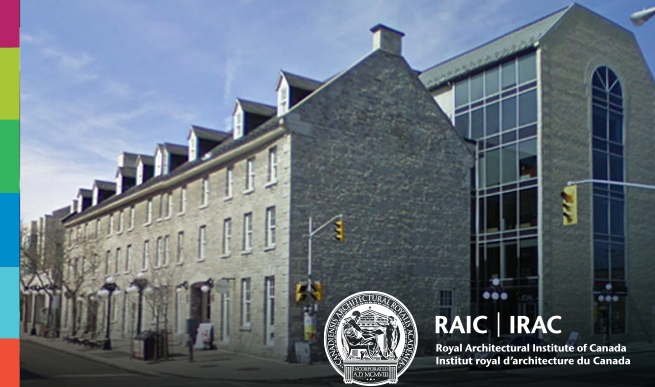![PhD and Postdoc Vacancies at Netherlands [UG]](https://scholaridea.com/wp-content/uploads/2020/07/University-of-Groningen.jpg)
Post-doc on Therapeutically-Relevant RNA Targets work on a project aimed at identifying functionally-relevant RNA structure elements
Applications are invited for a postdoctoral research position in the research group of Dr Danny Incarnato (http://www.incarnatolab.com), Molecular Genetics (http://www.molgenrug.nl), GBB (http://www.rug.nl/gbb). The successful applicant will work on a project aimed at identifying functionally-relevant RNA structure elements playing a role in the post-transcriptional control of disease-relevant genes. The results will assist the characterization of therapeutically-relevant RNA targets for the development of small molecule drugs.
Particularly, you will:
• perform in vivo mapping of RNA structure by combining a number of experimental approaches, including chemical probing and direct RNA duplex capture
• investigate small molecule-RNA target engagement in cells
• validate the mechanism of action of small molecules on the target RNAs.
Our lab actively develops combined experimental and computational methods for the analysis of RNA structure and dynamics in living cells (i.e. Morandi et al., Nat. Methods 2021 [PMID: 33619392]; Marinus et al., NAR 2021 [PMID: 33398343]). We apply these (and other) techniques to identify key RNA regulatory elements in disease-relevant RNAs, such as the genomes of the Influenza A virus (Simon et al., NAR 2019 [PMID: 25323333]) and of the SARS-CoV-2 virus (Manfredonia et al., NAR 2020 [PMID: 33166999]).
Qualifications
The ideal candidates must be highly motivated, hard-working, ambitious, creative, and enthusiastic about RNA and also interested in doing both wet-lab experiments and in silico work.
You will have the following qualifications:
• have a PhD degree in molecular biology, biochemistry, or related disciplines
• have experience with basic molecular biology techniques (i.e. qPCR, western blot, cloning, etc.)
• have experience with mammalian cell work (i.e. culture of cell lines and primary cells, transfection, etc.)
• prior experience working with RNA structure and NGS, as well as experience in bioinformatics and data analysis (i.e. R, Python, Perl) is a significant plus.
Organisation
Founded in 1614, the University of Groningen enjoys an international reputation as a dynamic and innovative center of higher education offering high-quality teaching and research. Flexible study programmes and academic career opportunities in a wide variety of disciplines encourage the 36,000 students and researchers alike to develop their own individual talents. As one of the best research universities in Europe, the University of Groningen has joined forces with other top universities and networks worldwide to become a truly global center of knowledge.
The IncaRNAto lab is embedded in the prestigious Groningen Biomolecular Sciences and Biotechnology Institute (GBB), located in the Zernike Campus, at the northern edge of the city of Groningen. The GBB is one of the larger institutes of the Faculty of Science and Engineering (FSE) and provides an excellent environment for top-notch research in the field of biomolecular sciences. Thirteen vibrant research groups with strong roots in biophysics, biochemistry & molecular biology, cell biology, chemistry, computational biology, microbiology or genetics are organized in two focal areas: ‘Molecular Mechanisms of Biological Processes’ and ‘Physiology and Systems Biology’.
Conditions of employment
We offer you in accordance with the Collective Labour Agreement for Dutch Universities:
• a salary from a minimum of € 3,420 gross per month up to a maximum of € 4,490 gross per month (salary scale 10) based on a full-time position and dependent on qualification and work experience
• a holiday allowance of 8% gross annual income
• an 8.3% end-of-year bonus and participation in a pension scheme for employees
The successful candidate will first be offered a temporary position of one year with the option of renewal for another year. Prolongation of the contract is contingent on external financing and sufficient progress in the first year.
The conditions of employment: https://www.rug.nl/about-us/work-with-us/
The preferred starting date as soon as possible
Application
You may apply for this position until 4 July 11:59pm / before 5 July 2022 Dutch local time (CET) by means of the online application form (click on “Apply” below on the advertisement on the university website).
Applications for the position should include (as a single PDF file):
• cover letter with background and motivation to apply for this position
• curriculum vitae, including details of labwork and/or in silico work experience and a publication list
• detailed (max. 2 pages) description of previous research experience
• contact details of 2 academic references, who can provide information on your suitability for the position.
The University of Groningen strives to be a university in which students and staff are respected and feel at home, regardless of differences in background, experiences, perspectives, and identities. We believe that working on our core values of inclusion and equality are a joint responsibility and we are constructively working on creating a socially safe environment. Diversity among students and staff members enriches academic debate and contributes to the quality of our teaching and research. We therefore invite applicants from underrepresented groups in particular to apply. For more information, see also our diversity policy webpage: https://www.rug.nl/(…)rsity-and-inclusion/
Our selection procedure follows the guidelines of the Recruitment code (NVP): https://www.nvp-hrnetwerk.nl/sollicitatiecode/ and European Commission’s European Code of Conduct for recruitment of researchers: https://euraxess.ec.europa.eu/jobs/charter/code
Unsolicited marketing is not appreciated.
Information
For information you can contact:
- Dr Danny Incarnato, recruitment@incarnatolab.com
Please do not use the e-mail address(es) above for applications.
![Postdoctoral and Research Opportunities at McGill University [CA]](https://scholaridea.com/wp-content/uploads/2020/06/mcgill-university-30-may-2019-768x402.jpg)

